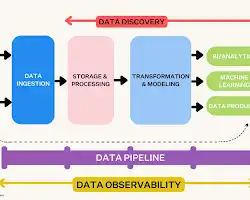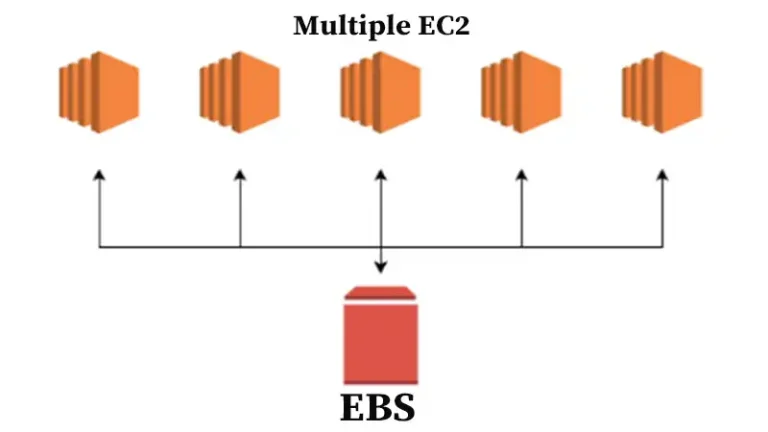What Are the Advantages of Using a Fully-Integrated Cloud-Based Data Analytics Platform?
Organizations are increasingly seeking solutions to harness the power of their vast data troves. Fully integrated cloud-based data analytics platforms have emerged as game-changers, offering a multitude of advantages over traditional on-premises solutions.
Keeping that in mind, we have here chosen top ten key benefits that make these platforms a compelling choice for businesses.

Merits of Using a Fully-Integrated Cloud-Based Data Analytics
Let’s take one-by-one and analyze the harnessable power of cloud-based data analytics platform.
1. Unified Data Access and Analysis
Traditional data analytics often face the challenge of siloed data, where information is scattered across disparate sources. Cloud-based platforms provide a centralized repository, seamlessly integrating data from various sources, including on-premises databases, cloud applications, and social media feeds.

Figure 1: Unified Data Access and Analysis
This unified view eliminates the need for manual data collection and integration, saving time and effort.
2. Scalability and Elasticity
Cloud-based data analytics platforms are designed to adapt to changing business needs. They offer elastic scalability, allowing you to scale up or down computing resources based on data volume and processing demands.
This flexibility ensures that your platform can handle spikes in data traffic or complex analytics tasks without compromising performance.
3. Reduced IT Costs
On-premises solutions often come with significant upfront costs for hardware, software, and ongoing maintenance. Cloud-based platforms eliminate these capital expenditures and provide a pay-as-you-go model, reducing IT expenses and freeing up resources for other business priorities.
4. Enhanced Collaboration and Sharing
Data-driven decision-making often requires collaboration across teams. Cloud-based platforms facilitate seamless sharing of data insights and analysis, enabling teams to work together effectively, regardless of their location. This collaborative environment fosters better-informed decisions and accelerates innovation.
5. Robust Data Security and Privacy
Data security is paramount in today’s digital landscape. Cloud-based platforms are built with advanced security measures, including encryption, access controls, and threat detection, to protect sensitive data from unauthorized access and breaches.
These platforms adhere to strict data privacy regulations, ensuring compliance and trust.
6. Real-Time Insights and Actionable Intelligence
Traditional data analytics often lag, providing insights after events have occurred. Cloud-based platforms enable real-time data processing and analysis, delivering actionable intelligence as data is generated.
This real-time visibility empowers businesses to make informed decisions promptly, gaining a competitive edge.
7. Predictive Analytics and Machine Learning
Advanced cloud-based platforms incorporate predictive analytics and machine learning capabilities. These tools analyze historical data to identify trends and patterns, enabling businesses to anticipate future outcomes and make proactive decisions.
This predictive power can optimize resource allocation, improve customer satisfaction, and mitigate potential risks.
8. Global Accessibility and Remote Access
Cloud-based data analytics platforms are accessible from anywhere in the world, providing a global reach for businesses with distributed operations.
Employees can access and analyze data from any device, regardless of their location, fostering collaboration and enabling informed decision-making across geographical boundaries.
9. Continuous Innovation and Updates
Cloud-based platforms are constantly evolving, with regular updates and new features introduced. This continuous innovation ensures that businesses always have access to the latest advancements in data analytics, empowering them to stay ahead of the curve and adapt to changing market landscapes.
10. Improved Decision-Making and Business Outcomes
At the heart of data analytics lies its ability to transform data into actionable insights that drive informed decision-making.
By providing a unified view of data, enabling real-time analysis, and incorporating predictive capabilities, cloud-based platforms empower businesses to make better decisions, optimize processes, enhance customer experiences, and ultimately achieve their business objectives.
Short Questions
What is a fully integrated cloud-based data analytics platform, and how does it differ from traditional analytics solutions?
A fully-integrated cloud-based data analytics platform combines various data processing and analysis tools in a unified environment. Unlike traditional solutions, it leverages cloud infrastructure for scalability, accessibility, and seamless integration.
What are the key advantages of using a cloud-based data analytics platform over on-premise solutions?
Cloud-based platforms offer benefits such as reduced infrastructure costs, easy scalability, and the ability to access data and analytics tools from anywhere. This flexibility is especially advantageous for businesses with dynamic or growing data needs.
How does a fully integrated analytics platform contribute to better decision-making within an organization?
By consolidating data sources and providing real-time analytics, a fully integrated platform enables organizations to make informed decisions quickly. This can lead to increased operational efficiency and a more responsive approach to market changes.
In what ways does a cloud-based analytics platform enhance collaboration among team members?
Cloud-based platforms facilitate collaboration by allowing team members to access and work on the same datasets and analyses from different locations. This promotes a more collaborative and efficient work environment.
Can you explain how the scalability of a cloud-based analytics platform is advantageous for businesses with fluctuating data volumes?
Cloud platforms allow businesses to scale their analytics resources up or down based on demand. This ensures optimal performance and cost-effectiveness, particularly for organizations with varying data processing requirements.
How does data security play a role in a fully integrated cloud-based analytics platform, and what measures are typically in place to protect sensitive information?
Cloud providers often implement robust security measures, including encryption, access controls, and regular audits. These features help protect data integrity and confidentiality, addressing concerns related to security in the cloud.
What role does automation play in a fully integrated cloud-based analytics platform, and how does it streamline data processing tasks?
Automation in cloud-based analytics platforms reduces manual intervention in tasks such as data cleaning, processing, and report generation. This leads to increased efficiency, allowing data professionals to focus on more strategic aspects of analysis.
How does a cloud-based analytics platform facilitate the integration of diverse data sources, and what benefits does this bring to an organization?
Cloud platforms often support a wide range of data connectors and integrations, enabling organizations to bring together data from various sources. This holistic view of data can lead to more comprehensive insights and informed decision-making.
What advantages does a fully-integrated cloud-based analytics platform offer in terms of accessibility and remote work capabilities?
Cloud platforms enable users to access analytics tools and insights remotely, fostering a more flexible work environment. This is particularly valuable for organizations with distributed teams or those embracing remote work arrangements.
How does a cloud-based analytics platform contribute to cost savings for businesses, considering factors like infrastructure, maintenance, and upgrades?
Cloud-based platforms eliminate the need for significant upfront investments in hardware and maintenance. Additionally, automatic updates and scalability contribute to ongoing cost savings, making it a financially prudent choice for many organizations.
Conclusion
In conclusion, fully integrated cloud-based data analytics platforms offer several advantages over traditional on-premises solutions. These advantages can help businesses of all sizes gain insights from their data, improve their decision-making, and achieve their goals.






